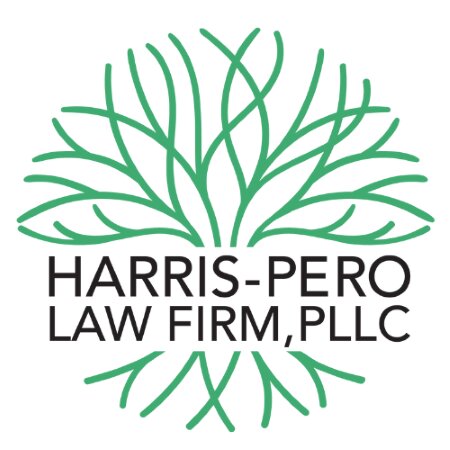Best Accounting & Auditing Lawyers in United States
Share your needs with us, get contacted by law firms.
Free. Takes 2 min.
Or refine your search by selecting a city:
List of the best lawyers in United States
About Accounting & Auditing Law in United States
In the United States, accounting and auditing law governs the maintenance and presentation of financial records and audits. These laws ensure that financial information is accurately reported and regulatory requirements are met. They provide a framework for how businesses, individuals, and other entities should conduct financial transactions and disclose financial information. Two main regulatory bodies, the Financial Accounting Standards Board (FASB) and the Public Company Accounting Oversight Board (PCAOB), set accounting standards and auditing guidelines, respectively. Compliance with these standards is crucial for ensuring transparency and maintaining public trust in the financial reporting process.
Why You May Need a Lawyer
There are several situations where individuals or businesses might require legal help related to accounting and auditing:
- Regulatory Compliance: Understanding and complying with federal, state, and local accounting regulations can be challenging without legal assistance.
- Financial Disputes: Disputes might arise from misrepresentation of financial statements, necessitating legal intervention.
- Audit Representation: If you or your business is subject to an audit, a lawyer can help navigate the process and handle any disputes that may arise.
- Fraud or Misconduct Allegations: Legal expertise is crucial in defending against allegations of financial fraud or misconduct.
- Mergers and Acquisitions: Lawyers are essential during due diligence and in addressing any accounting issues related to corporate transactions.
Local Laws Overview
Key aspects of local laws that are relevant to accounting and auditing in the United States include:
- Securities and Exchange Commission (SEC) Regulations: The SEC enforces federal securities laws, which impact financial reporting for publicly traded companies.
- Generally Accepted Accounting Principles (GAAP): GAAP is the accounting standard adopted by the SEC, ensuring consistency and comparability in financial reporting.
- Sarbanes-Oxley Act (SOX): This act established stricter regulations for public company boards, management, and public accounting firms to increase transparency.
- Dodd-Frank Act: It introduced financial regulatory reforms to improve accountability and transparency in the financial sector.
- State-specific Regulations: Different states may have additional requirements or standards beyond federal regulations.
Frequently Asked Questions
What is the role of an accountant in a business?
An accountant manages financial records, ensures accuracy, and helps businesses remain compliant with tax laws. They also assist in budgeting, financial analysis, and planning.
What should I do if I suspect financial fraud?
Consult a lawyer immediately to understand your legal obligations and options. They can help in investigating the matter and dealing with regulatory authorities.
How often are companies audited?
The frequency of audits can vary depending on company size, industry regulations, and whether it is a public or private entity. Generally, public companies are audited annually.
What is forensic accounting?
Forensic accounting involves investigating financial discrepancies and fraud. Forensic accountants are often engaged during legal disputes for providing expert testimony.
Do small businesses need to follow GAAP?
While not legally required for all small businesses, following GAAP is encouraged as it ensures consistency and transparency in financial statements, which can be beneficial for obtaining loans or attracting investors.
How can a lawyer help with an IRS audit?
A lawyer can help by preparing documentation, representing you during the audit process, and negotiating any settlement, ensuring that your rights are protected throughout the process.
What are internal controls in auditing?
Internal controls are policies and procedures implemented by a business to ensure financial integrity, enhance accuracy in financial reporting, and prevent fraud.
Can a lawyer provide tax advice?
Yes, tax attorneys specialize in the nuances of tax law, providing guidance on compliance, planning, and representing you in disputes with tax authorities.
What is the PCAOB, and why is it important?
The PCAOB oversees the audits of public companies, defining the standards and rules to ensure the accuracy of audit reports and protect investors' interests.
What kinds of records are typically reviewed in an audit?
Auditors examine financial statements, bank statements, tax returns, purchase and sales records, internal accounting records, and other financial documents.
Additional Resources
Several resources can assist those seeking legal advice in accounting and auditing:
- The American Institute of CPAs (AICPA) provides resources for accounting professionals.
- The SEC's Office of the Chief Accountant offers guidance on accounting practices.
- The PCAOB website provides insights into auditing standards and regulations.
- The Institute of Internal Auditors (IIA) offers standards and practices for internal auditing.
- State Boards of Accountancy regulate accounting practices at the state level and offer resources for local compliance.
Next Steps
If you require legal assistance in accounting and auditing, consider the following steps:
- Research and identify lawyers who specialize in accounting and auditing law.
- Prepare relevant documents related to your legal issue for consultation.
- Schedule a consultation to discuss your needs and learn about your legal options.
- Assess the lawyer's expertise, compatibility, and approach to your issue before retaining their services.
Taking the right legal steps promptly can help ensure compliance and protect your financial interests.
Lawzana helps you find the best lawyers and law firms in United States through a curated and pre-screened list of qualified legal professionals. Our platform offers rankings and detailed profiles of attorneys and law firms, allowing you to compare based on practice areas, including Accounting & Auditing, experience, and client feedback.
Each profile includes a description of the firm's areas of practice, client reviews, team members and partners, year of establishment, spoken languages, office locations, contact information, social media presence, and any published articles or resources. Most firms on our platform speak English and are experienced in both local and international legal matters.
Get a quote from top-rated law firms in United States — quickly, securely, and without unnecessary hassle.
Disclaimer:
The information provided on this page is for general informational purposes only and does not constitute legal advice. While we strive to ensure the accuracy and relevance of the content, legal information may change over time, and interpretations of the law can vary. You should always consult with a qualified legal professional for advice specific to your situation.
We disclaim all liability for actions taken or not taken based on the content of this page. If you believe any information is incorrect or outdated, please contact us, and we will review and update it where appropriate.
Browse accounting & auditing law firms by state in United States
Refine your search by selecting a state.

















